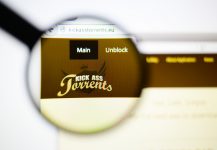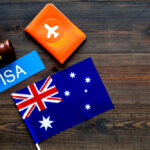Are Illegal Aussie Downloaders in Trouble?

The price of movies, games and music in Australia is very high compared to many other western countries.
Perhaps this is part of the reason that we have one of the highest rates of illegal downloading in the world.
The high rate of illegal downloading has led to discussions about introducing new legislation to penalise those who have been found to be downloading content illegally.
Illegal downloading of movies and TV shows has been shown to impact the film and television industry, and now the makers of one hit movie are trying to take matters into their own hands.
Last month, the US makers of the Oscar-winning movie the Dallas Buyers Club filed a discovery order in the Australian Federal Court in a bid to gain access to the identities of users who had downloaded the movie illegally.
These details would be acquired through five major internet service providers in Australia, including Dodo, iiNet and Internode.
What does this mean?
If granted, this recovery order would provide the makers with the names and contact addresses of people who had downloaded the movie, and would allow them to follow up to try to recover costs.
Currently, section 276 of the Telecommunications Act prohibits telecommunications companies from releasing information about the identity of their customers.
Once a request for an order is made, telecommunications providers have the option of complying or resisting the order, or remaining neutral and letting the court decide.
iiNet has vowed to fight the request in court, voicing concerns that if contact details are provided, their customers could face harassment and intimidation through a practice known as ‘copyright trolling’.
The company that is behind the request for information, Dallas Buyers Club LLC, has undertaken similar behaviour in the US.
The company previously obtained contact details for customers who they believed had pirated the movie and sent them letters demanding thousands of dollars in payment for breach of copyright, and threatened legal action if they didn’t pay.
This practice is also known as ‘speculative invoicing’ and is a tactic which is very much frowned upon in Australia.
What happens if the company wins the case?
Should the Dallas Buyers Club LLC win and obtain the addresses and names of people in Australia who have illegally downloaded the movie, it is likely they will be closely monitored by the ACCC and other consumer organisations to ensure they aren’t acting unethically.
Even with the contact details of customers, the only thing that is revealed is the address of the premises and the name of the person the account is registered in.
This isn’t necessarily the same person who was at the keyboard of the computer downloading the movie, which could lead to legal problems when it comes to penalising them.
Even with an address and contact name, to be successful in bringing copyright infringement charges against people, it’s likely that the company would have to prove that each individual was the person responsible for downloading the movie, and not someone else at the premises.
How widespread is illegal downloading in Australia?
As much as 29% of adults and teenagers in Australia regularly download pirated content.
As stated, this high rate of illegal downloading is believed to be at least partly due to the lack of availability of affordable legal content in Australia compared to other countries.
Other countries like the US, where users have access to low-priced movies and television shows through services like Netflix, have seen their rate of pirating and illegal downloading come down.
Unfortunately, Australia doesn’t currently have a comparable service.
The cost of purchasing legal online content, including blockbuster Hollywood movies and television shows, is estimated at around 50% more than for users in other countries.
iiNet is no stranger to the Australian legal system, having won a case two years ago in the Federal Court that found the internet service provider not responsible for pirating and illegal downloading of movies made by its customers.
This finding was unanimous, and was made on the basis that by providing a service, the telecommunications companies didn’t authorise their customers to download pirated material.
iiNet and other internet service providers have indicated a willingness to work with Hollywood movie companies to find a way to provide legal digital content at an affordable price, thereby discouraging pirating.
What is the government planning to do to stop illegal downloads?
Recently, the government announced a raft of new measures that are intended to reduce the prevalence of illegal downloads as well as make it easier for users of pirating websites to be identified and penalised.
These measures include forcing internet service providers (ISPs) to block known pirating websites, and placing responsibility on them to curb illegal downloading by the Australian public.
Measures that have been taken in other countries to reduce illegal downloads include a graduated system of notices in New Zealand, where users are charged $25 per illegal download and copyright holders have the right to seek up to $15,000 compensation from the copyright tribunal.
In the US, ISPs are authorised to reduce the internet speed for customers who have been detected downloading illegally, and even block their access altogether.
Whatever happens with iiNet and whether or not the planned government measures come into effect, it is likely that there will be changes soon when it comes to illegal downloading and pirating music, games, movies and TV shows.






